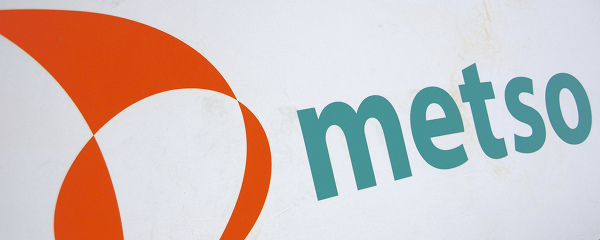- Details
Metso has removed an exclusion clause from its collective bargaining agreement that limited the rights of its workers to associate. The change was instated in line with Mexico's labour law reform, but goes even further than the law requires.

Kuva: Andrew Ashton
In December 2012, Finnwatch published a report on the realisation of freedom of association amongst workers employed by Finnish companies operating in Mexico. The report found that the collective bargaining agreements of many Finnish companies included an exclusion clause that limited the freedom of association of their workers.
Metso was among the companies investigated. Metso told researchers that a labour union that was a party to its collective bargaining agreement had demanded that the clause be included. However, in 2013, after the report was published, the company initiated talks to remove the exclusion clause.
“Metso’s active approach to permit freedom of association will act as a positive example to other Finnish companies that operate in Mexico,” says Sonja Vartiala, Executive Director at Finnwatch.
When Mexico’s labour law reform entered into force in November 2012, the part of the law pertaining to the exclusion clause had been altered. The new law no longer permits an employer to end an employee’s employment contract, just because his/her labour union membership has been revoked or he/she has terminated their membership. However, the law still allows employers to set membership of a labour union, usually one chosen by the employer, as a condition for initiation of employment. Both clauses that limit freedom of association have been removed from Metso’s new collective bargaining agreement.
Allowing workers the freedom to associate and organise is a human rights issue. In accordance with the conventions of the International Labour Organization, the right of workers to organise and their freedom of association should not be limited in any way.
“It is a good thing that Mexico has begun to dismantle the protection contract system. However, the law does not yet allow for freedom of association, if an employer chooses to act irresponsibly,” Vartiala says.
According to the Finnwatch report, protection contracts were also in use at the Kone, Huhtamäki, Luvata Monterrey, Nokia and PKC Group factories. In addition to Metso, Huhtamäki has announced that it has initiated measures to remove the exclusion clauses that prohibit freedom to association from its collective bargaining agreement.
Representatives of workers in Mexico have been dissatisfied with the impact of the new law on the rights of workers. Mechanisms that could regulate the corporate or white unions that work in cooperation with employers are still completely missing, which means that with regard to freedom of association the workers’ rights are essentially the same as they were previously.
The new law has also seen the rights of the workers diminish to some extent. Especially regulations that have increased the possibility of new, short-term employment contracts have caused concern. The political purpose of Mexico’s labour law reform is to improve Mexico’s competitiveness by making regulations more flexible. A great many of the most critical questions concerning an improvement to the rights of workers have been left unanswered.

Tämä teos, jonka tekijä on Finnwatch, on lisensoitu Creative Commons Nimeä-EiKaupallinen-EiMuutoksia 4.0 Kansainvälinen -lisenssillä.






